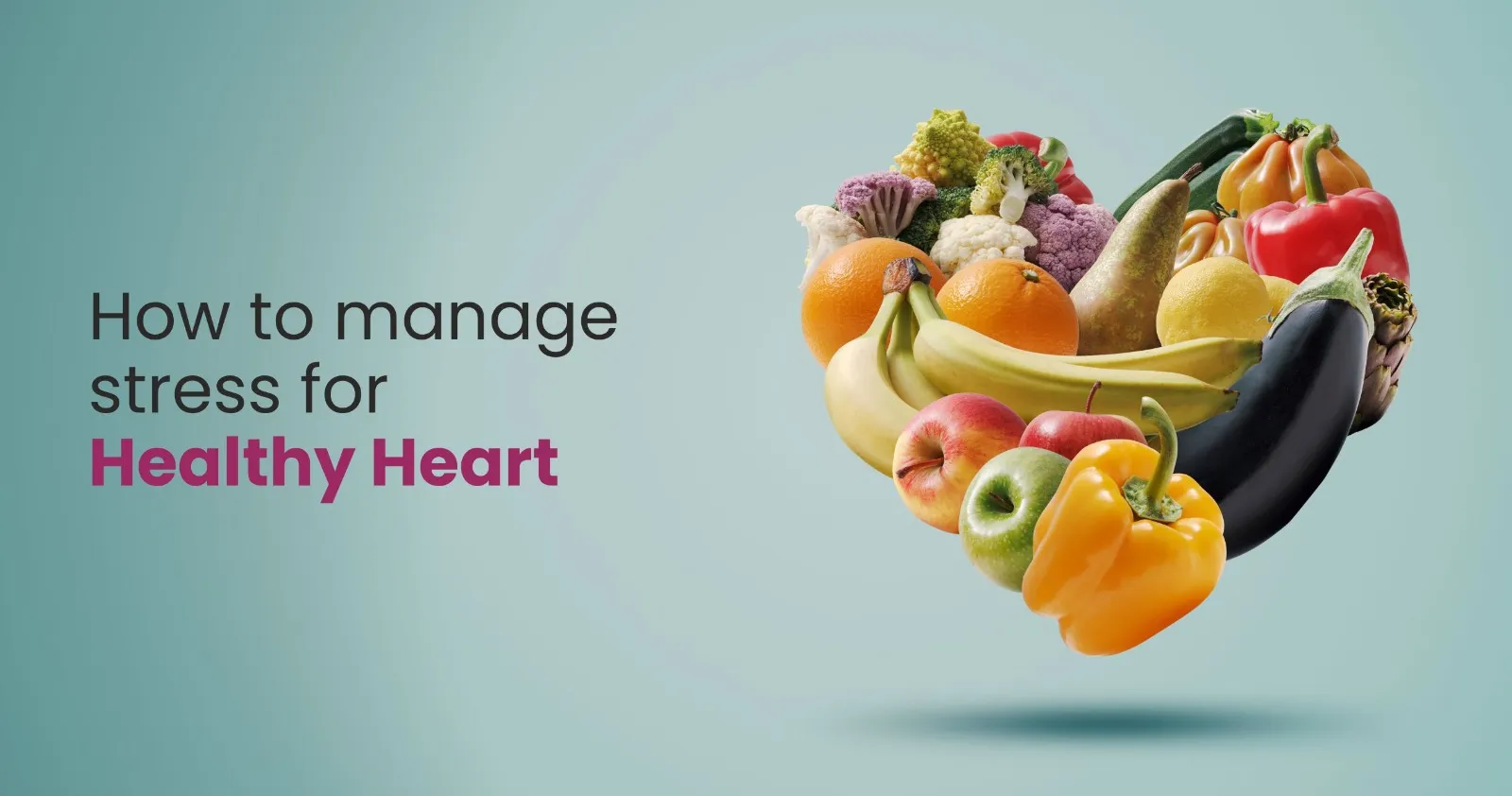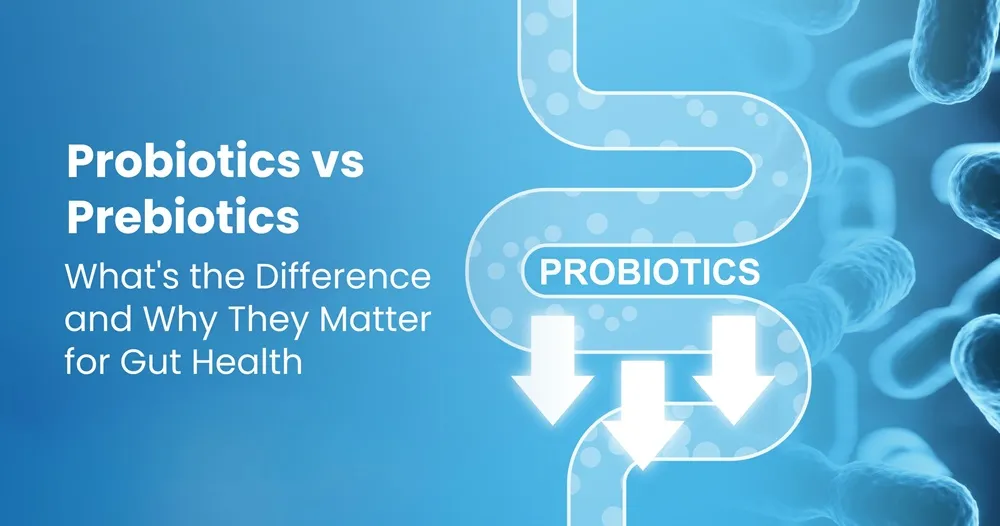Heart-Healthy Diet: Foods to Include and Avoid for a Strong Heart
Oct 06, 2023

A healthy diet and active lifestyle are the key to living a healthy life. Good and Proper nutrition can boost your immunity and protect you against several non-communicable diseases, like diabetes, heart disease, and cancers. A healthy diet comprises all important sources of vitamins, minerals, dietary fibre, plant protein and antioxidants. It should include all vegetables, fruits, legumes, dairy products, and cereals.
However, specific food items can help you achieve a particular goal; if you want to increase weight, you must include food items with proteins. Similarly, if you want to maintain your heart, this blog discusses food items you can include in your healthy diet.
What are the foods to help you in your heart-healthy diet?
Here are some foods that you can incorporate into your diet to make it healthy and keep your heart healthy:
- Brussel Sprouts
Brussels sprouts are rich in fibre, which can help lower LDL cholesterol levels. This type of cholesterol is the "bad" kind that can clog arteries and increase the risk of heart disease. Moreover, they are packed with antioxidants like vitamins C and E, which are best for cardiovascular health. These powerful nutrients counteract the damaging effects of free radicals in your body. Additionally, brussel sprouts provide a good amount of potassium, a mineral that aids in lowering blood pressure.
- Edamame
A 100-gram serving of edamame offers more than seven grams of polyunsaturated and monounsaturated fats. These healthy fats help lowering cholesterol levels and protect the heart from damage. Additionally, edamame is rich in alpha-linoleic acids (ALAs), a type of omega-3 fatty acid that effectively reduces the risk of heart disease. Furthermore, edamame is an excellent source of dietary fiber, vitamins, and minerals like folate, iron, magnesium, and potassium – all known to contribute to cardiovascular health.
- Cauliflower
Cauliflower is packed with vitamin C for protecting blood vessels and vitamin K to prevent artery hardening. Additionally, the potassium in cauliflower helps regulate blood pressure, while magnesium supports proper heart function. To top it off, its fibre content aids in lowering cholesterol levels.
- Oily Fish
Salmon, tuna, sardines, and mackerel contain omega-3 fatty acids. These acids reduce the risk of heart disease and improve cardiovascular function. But that's not all - oily fish also provide high-quality protein, vitamins (D and B12) and minerals (calcium, phosphorus, and iodine) that contribute to heart health.
- Salmon
One of the key components is the high content of omega-3 fatty acids, specifically EPA and DHA. These beneficial fats provide several health benefits. In addition, salmon is also very rich in potassium. Regarding nutrition, a 3-ounce (85g) serving of raw, wild Atlantic salmon contains approximately 121 calories, 17g of protein, and 5.4g of these amazing omega-3 fatty acids.
approximately 121 calories, 17g of protein, and 5.4g of these amazing omega-3 fatty acids.
What are the foods to avoid in your heart-healthy diet?
Besides, here are some things that you should remove from your eating routine or minimize the consumption to ensure your diet promotes your cardiovascular health and keeps all the heart conditions away:
- Potato Chips
Potato chips pose health risks due to their high sodium content, hydrogenated oils, and acrylamide. Consuming these snacks can increase blood pressure and damage blood vessel walls because of their excessive salt levels. Furthermore, they contain trans fat, which raises LDL (bad cholesterol) and lowers HDL (good cholesterol).
- Canned Soup
One harmful chemical often found in canned soups is Bisphenol A (BPA). It is added to the lining of cans and has been associated with increased levels of heart disease, obesity, and diabetes. According to a study, participants who consumed canned soup daily for just five days exhibited high urine levels of BPA. Moreover, canned soups frequently contain excessive amounts of sodium. It can result in water retention and weight gain.
- Fried Chicken
When fried, chicken absorbs a significant amount of oil, which increases its fat content. Fried foods are typically high in saturated and trans fats, which can contribute to plaque buildup in arteries. This buildup can lead to coronary artery disease, heart attack, and stroke. Additionally, frying chicken at high temperatures can produce harmful chemicals called acrylamide.
- Butter
There are approximately 100 calories and 7 grams of saturated fat in just one tablespoon of butter. Consuming too much saturated fat and cholesterol can exceed the recommended daily limits, affecting your heart health.
- Alcohol
Ethanol, the primary type of alcohol present in alcoholic drinks, has a direct toxic effect on the heart muscles, leading to alcoholic cardiomyopathy. Alcoholic cardiomyopathy, or dilated cardiomyopathy, occurs when the heart muscle progressively weakens and cannot efficiently pump blood to other body parts.
- Red Meat
Chemicals like trimethylamine N-oxide (TMAO), gamma-butyrobetaine, and crotona betaine are present in red meat. These chemicals are metabolites produced by gut bacteria from nutrients found abundantly in meat. Regular consumption of red meat can result in higher levels of TMAO in the blood. Moreover, the compound heme iron, commonly found in red meat, can contribute to the generation of harmful free radicals within the body.
Wrapping Up,
Cardiovascular disease (CVD) is the leading cause of death worldwide, taking over 18 million lives yearly. Remember, there are no shortcuts when it comes to your heart health. A healthy diet can help you maintain your heart health and reduce cholesterol levels, one of the main causes of heart disease.
Apollo Diagnostics is your health partner, providing world-class diagnostic facilities in the comfort of your home. Whatever medical reports you need for appropriate diagnosis, you can book your medical tests, and our professionals will be at your doorstep for home collection. Moreover, we will provide your report result at the earliest. Visit our website and book your medical tests today to know your health more closely.
FAQs:
- Which diet is best for the heart?
The ideal heart-healthy diet emphasizes a wide variety of fruits and vegetables, whole grains, and healthy sources of lean protein with limited high-fat and high-sodium food intake.
- Which drink is good for heart health?
Green tea reduces the risk of coronary heart disease and lowers cholesterol and blood pressure. Additionally, pomegranate juice has been identified as a beneficial drink for heart health.
- Which daal is best for your heart health?
Whole moong dal or split dal is high in protein, dietary fibre and other essential nutrients like manganese, magnesium, phosphorus, copper, potassium, and zinc. Lentils are another great option, containing high fibre, protein, and minerals like magnesium and potassium.
Related Blog Post
Blog Categories
- Child Health
- Mens Health
- Women's Health
- Mental Health
- Health Myths & Facts
- Fitness
- Nutrition/Recipes
- Remedies
- Weight Management
- Stress Management
- Health Supplements
- Addiction Management
- Disease Management
- Allergy
- Anemia
- Arthritis
- Asthma
- Autoimmune Diseases
- Blood Pressure
- Cancer
- Deficiencies
- Dengue/Malaria/Chikungunya
- Diabetes
- Eye Problems
- Heart Diseases
- Hepatitis
- HIV/AIDS/STD
- Hormonal Imbalance
- Infection/Flu/Viral
- Kidney
- Liver
- Menstrual Problems
- Pregnancy
- Skin & Hair Problems
- Stomach Ailments
- Thyroid
- Others
- Health Checkups
- Diagnostics/Pathology
- Lifestyle & Wellness
- Covid
- Medical Tests
- Cholesterol
- Health Tips
- Parent Care/Old Age
- Lungs
- Food Intolerance








